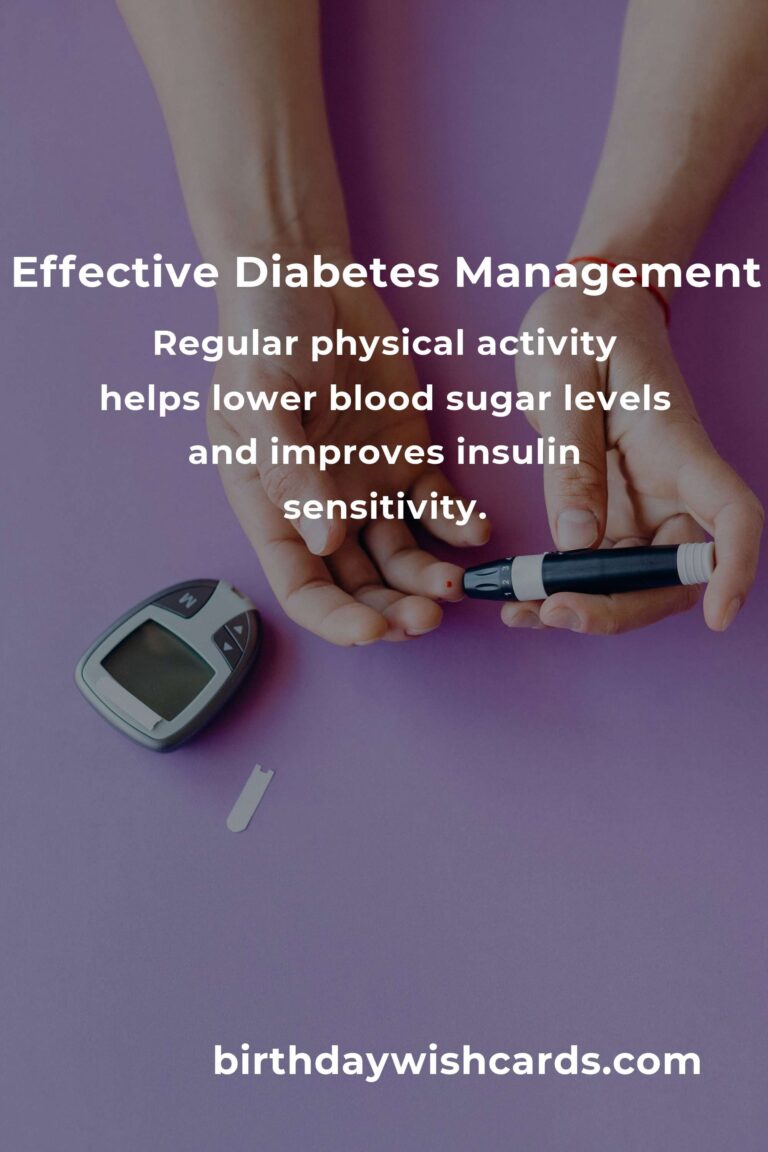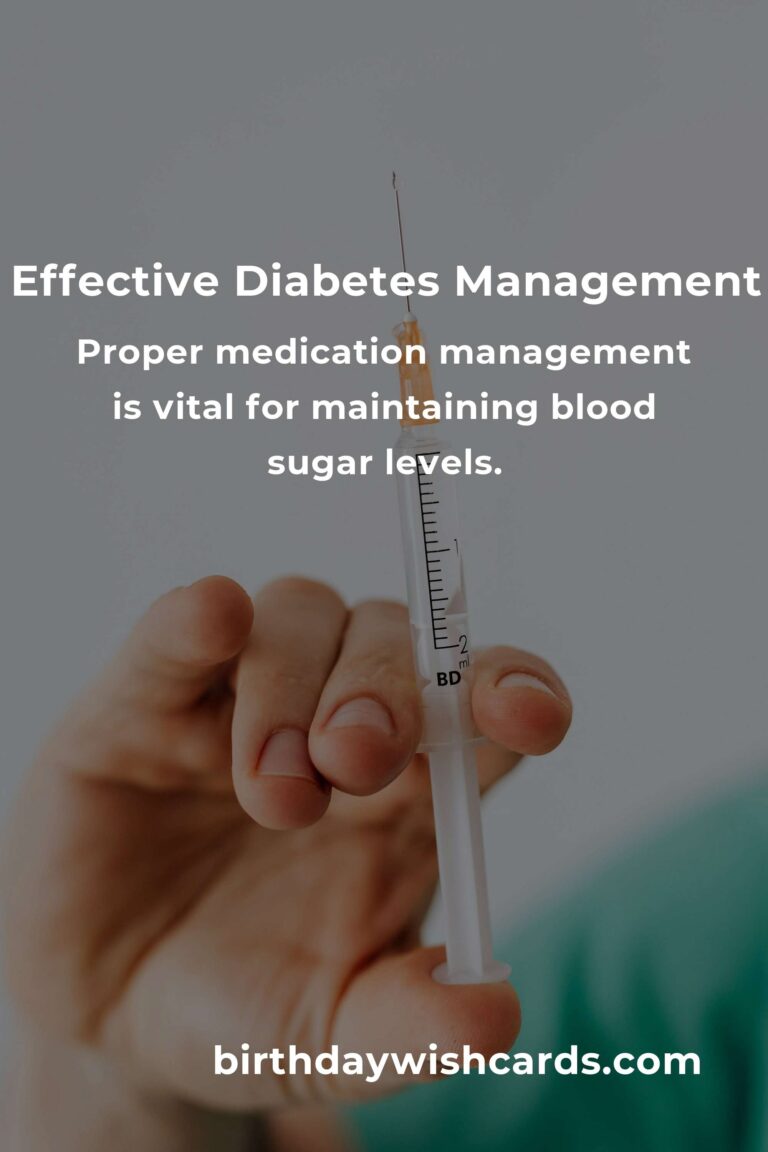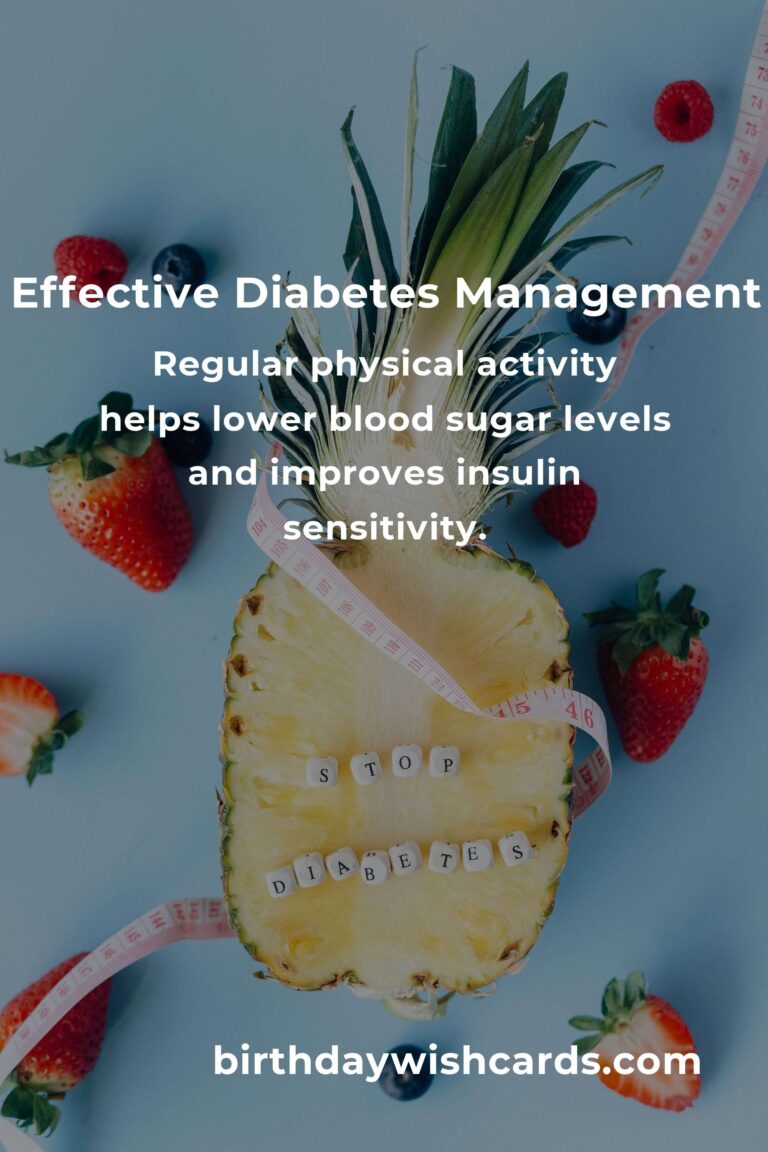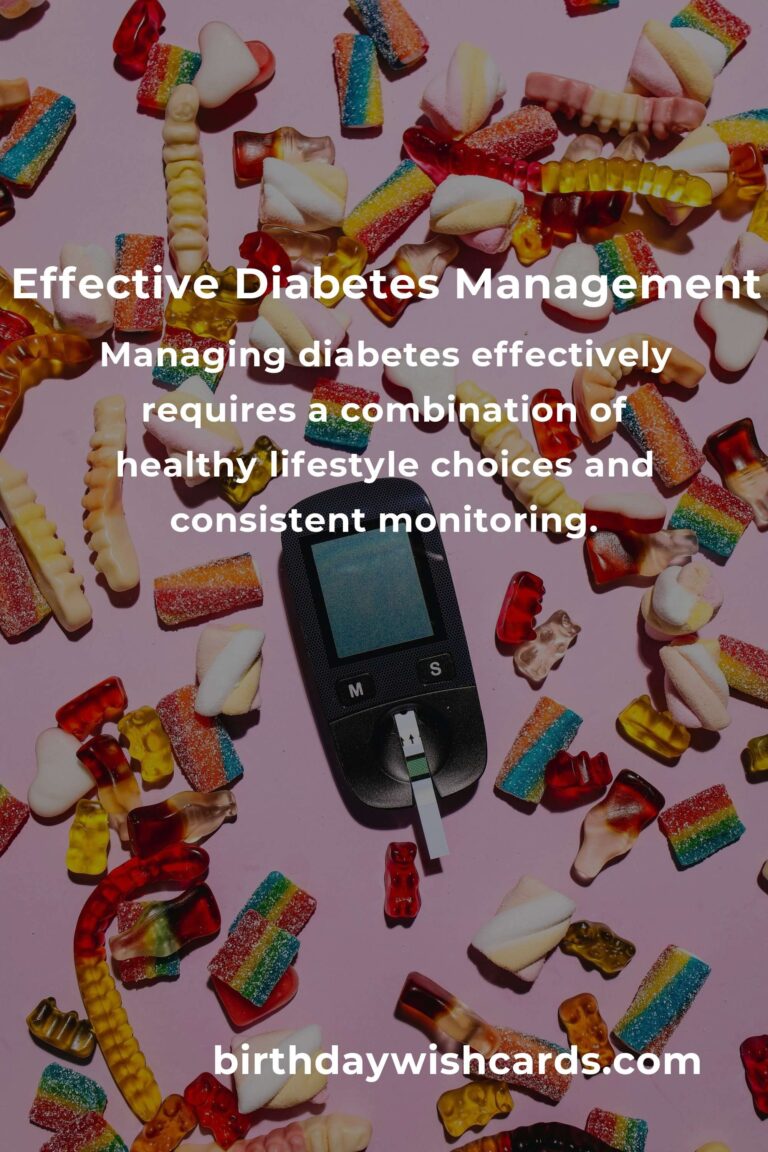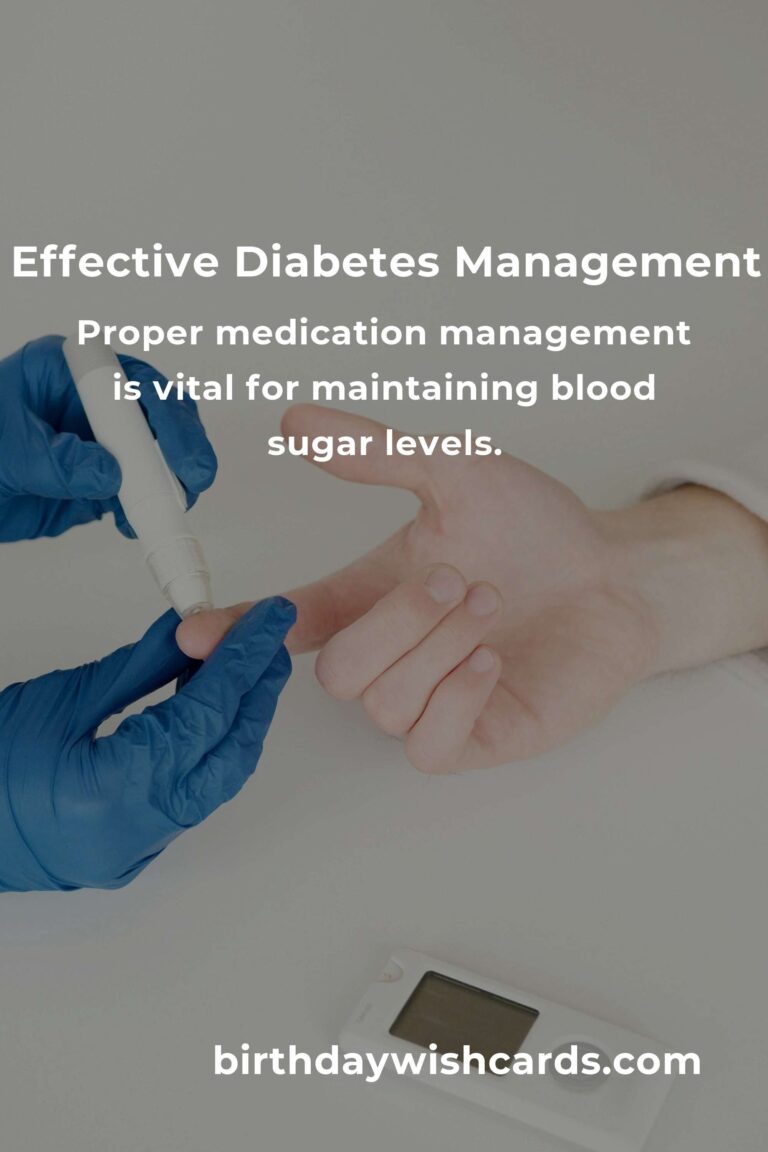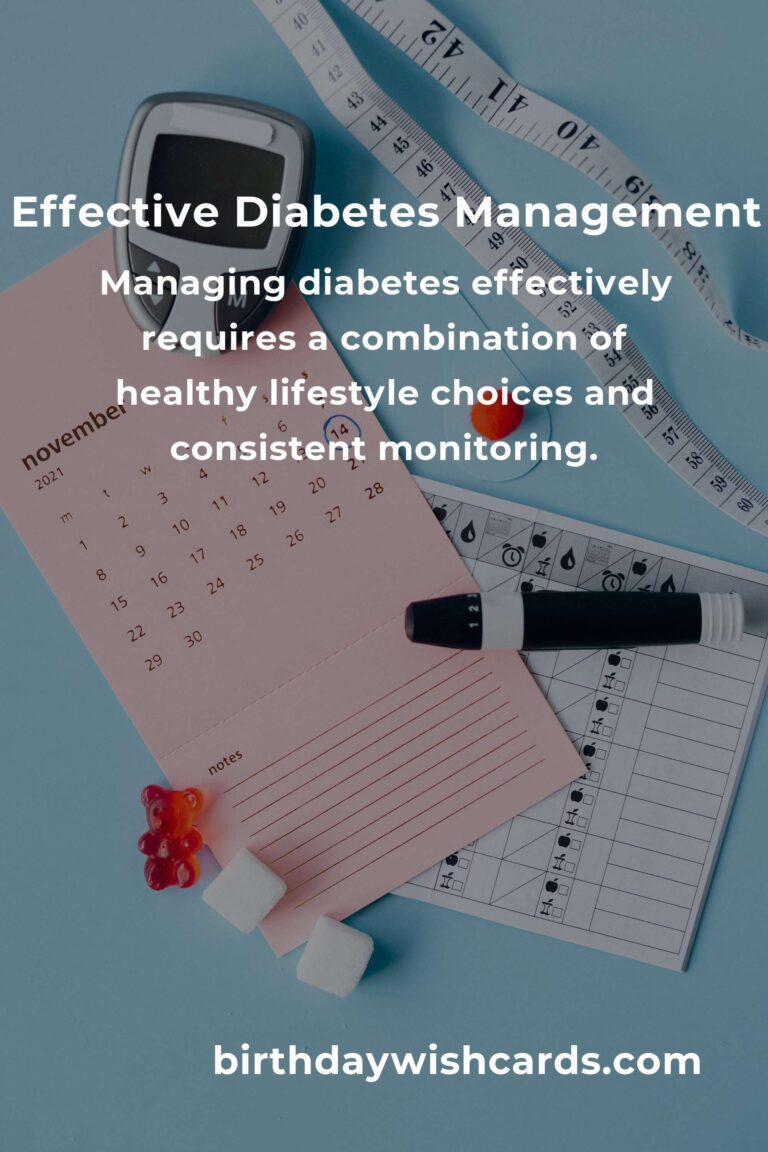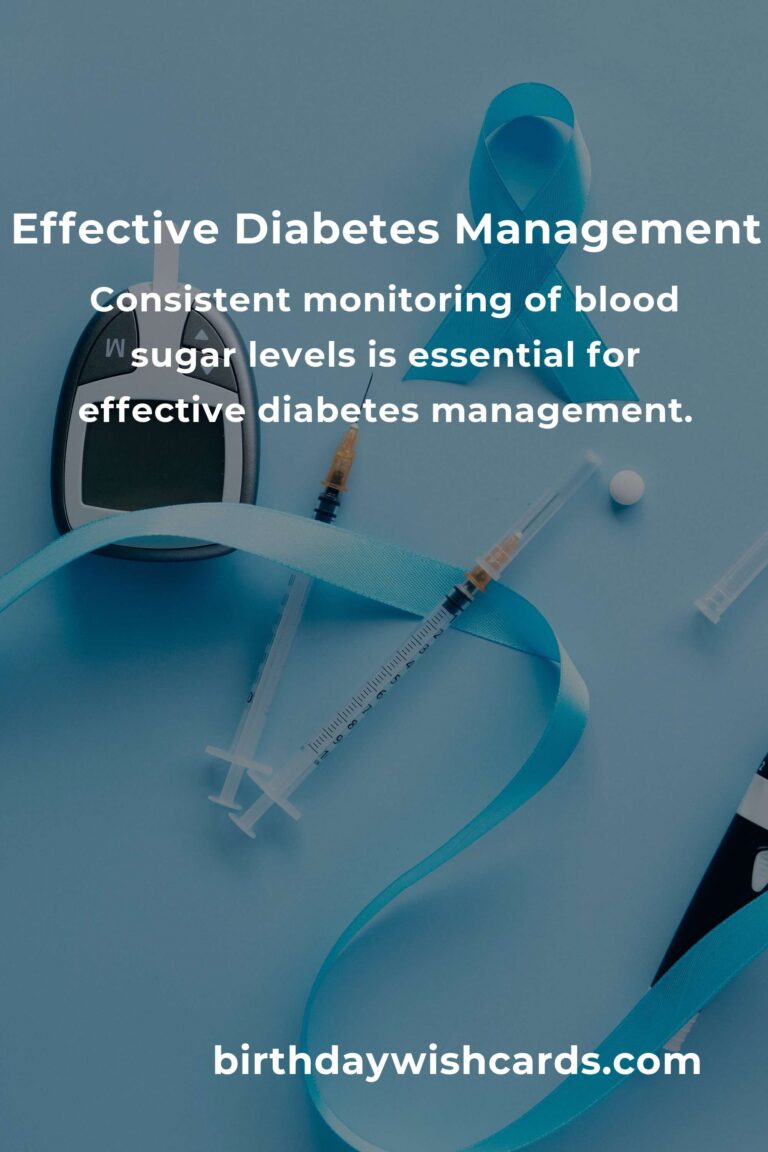
Managing diabetes effectively requires a combination of healthy lifestyle choices and consistent monitoring. Whether you are newly diagnosed or have been managing diabetes for some time, integrating specific daily habits can significantly improve your quality of life. This article explores practical strategies for diabetes management that can be easily incorporated into your daily routine.
Understanding Diabetes and Its Challenges
Diabetes is a chronic condition that affects how your body processes blood sugar (glucose). The main types of diabetes are Type 1, Type 2, and gestational diabetes. Each type requires careful management to prevent complications and ensure wellbeing.
Managing diabetes involves balancing medication, diet, physical activity, and regular health check-ups. It’s crucial to understand how each of these elements affects your blood sugar levels. By developing a daily routine that incorporates these elements, you can maintain stable blood sugar levels and reduce the risk of complications.
Diet and Nutrition
One of the most important aspects of diabetes management is maintaining a balanced diet. Here are some dietary habits to consider:
- Plan Your Meals: Regular meal planning helps in maintaining consistent blood sugar levels. Include a variety of fruits, vegetables, lean proteins, and whole grains in your diet.
- Monitor Carbohydrate Intake: Carbohydrates have a significant impact on blood sugar levels. Learn to count carbohydrates and understand how they affect your glucose levels.
- Stay Hydrated: Drinking plenty of water helps in managing blood sugar levels and overall health.
- Avoid Sugar-Sweetened Beverages: Beverages with added sugars can cause blood sugar spikes. Opt for water, herbal teas, or other no-calorie drinks.
Physical Activity
Regular physical activity is essential for managing diabetes. It helps lower blood sugar levels and improves insulin sensitivity. Consider the following:
- Set Realistic Goals: Start with small, achievable goals and gradually increase your activity level.
- Incorporate Different Exercises: Include a mix of aerobic exercises, strength training, and flexibility exercises in your routine.
- Stay Consistent: Aim for at least 150 minutes of moderate aerobic activity per week, such as brisk walking or cycling.
- Monitor Your Blood Sugar: Check your blood sugar before and after exercise to understand how physical activity affects you.
Medication Management
Proper medication management is crucial for maintaining blood sugar levels. Here are some tips:
- Follow Your Prescribed Plan: Take medications as prescribed by your healthcare provider.
- Keep Track of Your Medications: Use a pill organizer or set reminders to take your medication on time.
- Communicate with Your Healthcare Provider: Regularly discuss any side effects or concerns with your healthcare team.
Regular Monitoring
Consistent monitoring of blood sugar levels is vital for effective diabetes management. Consider these practices:
- Check Blood Sugar Regularly: Use a glucose meter to monitor your levels as recommended by your healthcare provider.
- Keep a Log: Maintain a record of your blood sugar readings, medications, diet, and physical activity.
- Schedule Regular Check-Ups: Visit your healthcare provider regularly to assess your management plan and make necessary adjustments.
Stress Management
Stress can affect blood sugar levels and overall health. Implementing effective stress management techniques can enhance diabetes control.
- Practice Relaxation Techniques: Engage in activities such as yoga, meditation, or deep breathing exercises.
- Maintain a Support System: Connect with friends, family, or support groups for emotional support.
- Get Adequate Sleep: Aim for 7-9 hours of quality sleep each night to help regulate hormones and stress levels.
Conclusion
By incorporating these habits into your daily routine, you can effectively manage diabetes and improve your overall wellbeing. Remember, each person’s diabetes management plan is unique, so it’s important to work closely with your healthcare provider to tailor these strategies to your specific needs. With dedication and consistency, you can lead a healthy and fulfilling life despite the challenges of diabetes.
Managing diabetes effectively requires a combination of healthy lifestyle choices and consistent monitoring.
Maintaining a balanced diet is crucial for diabetes management.
Regular physical activity helps lower blood sugar levels and improves insulin sensitivity.
Proper medication management is vital for maintaining blood sugar levels.
Consistent monitoring of blood sugar levels is essential for effective diabetes management.
#DiabetesManagement #HealthyHabits #DiabetesCare #DailyRoutine #HealthAndWellness


